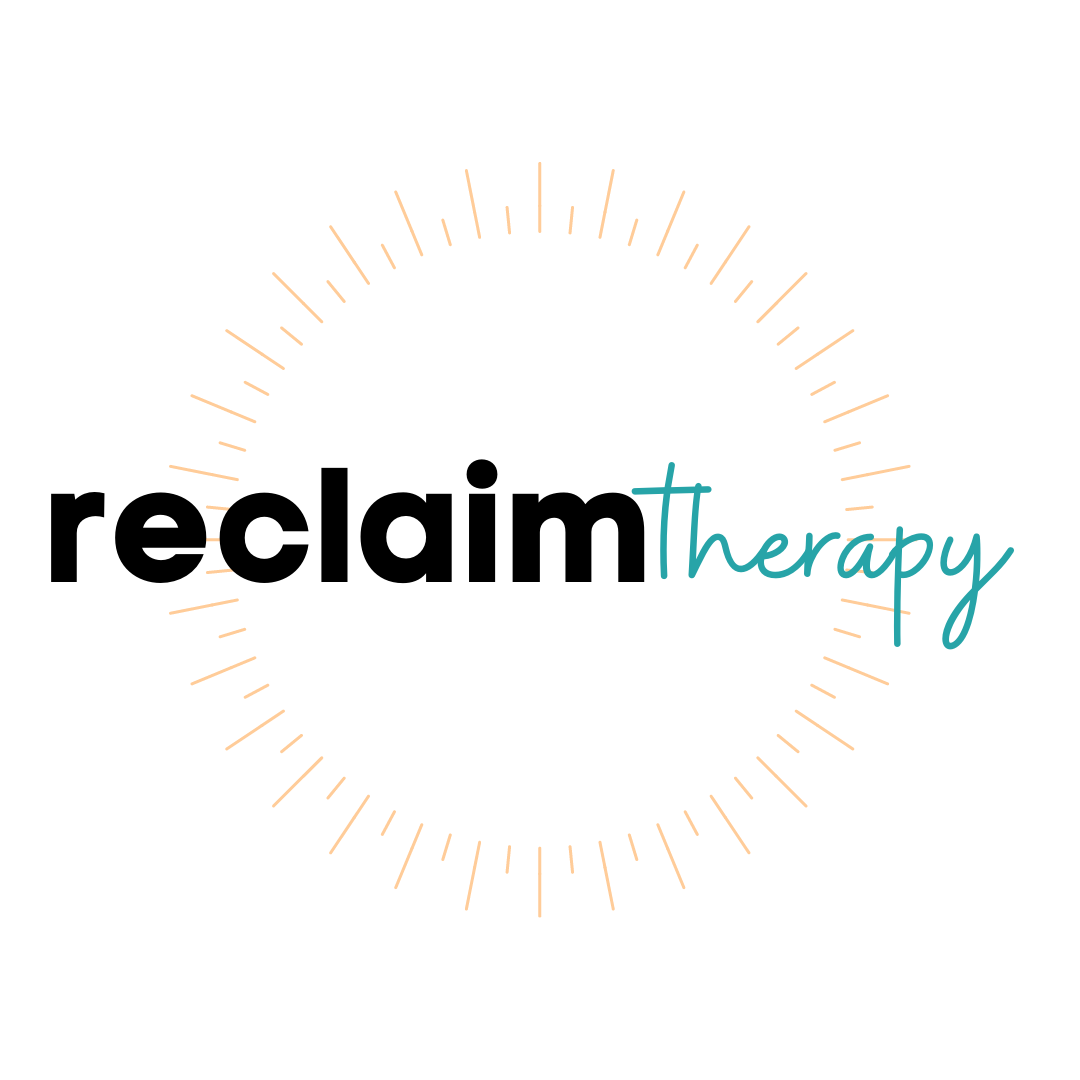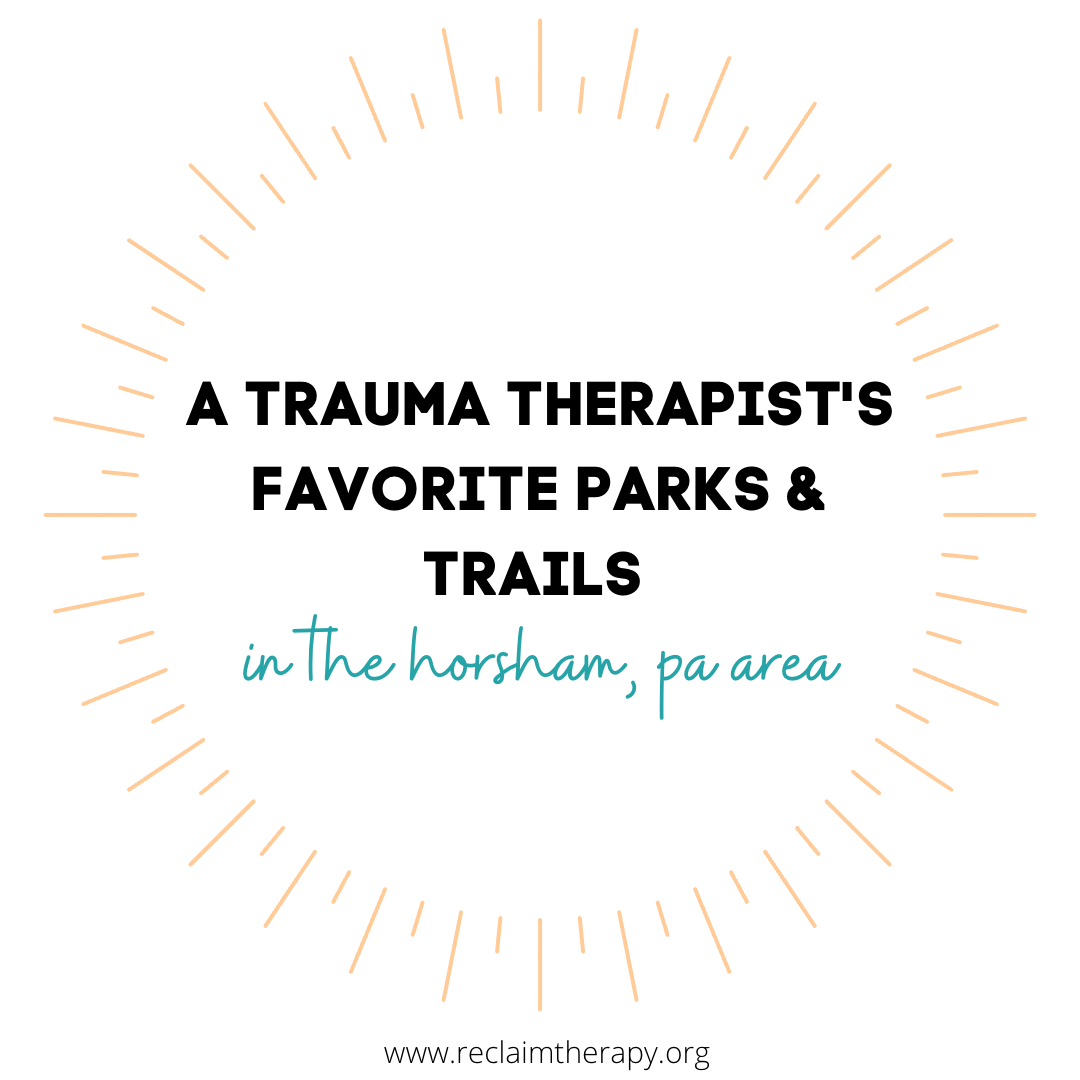
A Trauma Therapist's Favorite Parks & Trails in the Horsham, PA Area
In our fast-paced and often stressful lives, it's essential to find moments of peace and grounding. Coping in the aftermath of trauma can be difficult, and is always brave. We believe that connecting with the natural world can be grounding, regulating and supportive of treatment for PTSD and CPTSD.

How to Build a Positive Relationship With Movement
Now that summer is in full swing, we are too often bombarded with messaging from diet culture about “summer bodies” and all of the ways we “should” be moving our bodies to get those results.
UGH!!

Using Values to Guide Recovery from Disordered Eating in Pennsylvania
Why is decision making so hard!?
Sources state that we make upwards of 35,000 decisions per day.
Whether or not this number is accurate, I imagine most of us can attest to how often we make decisions throughout the week. We can also likely call to mind moments we’ve felt lost or directionless. F

Stop Body Checking through Body Image Therapy in Pennsylvania
Struggling with body image issues and body dysmorphia can be overwhelming, and at times, debilitating. Body checking is one of the behaviors that many people with and without eating disorders engage in attempt manage their anxiety about their appearance. However helpful it might feel in the moment, body checking typically only fuels more negative thoughts, feelings obsession and hyper-vigilance about the body, making recovery difficult.

Navigating Boundaries After Trauma: Trauma Therapy Near Me
In this blog post, we explore what boundaries are and why they're challenging to set after experiencing trauma. We also prove some practical tips for setting and maintaining healthy boundaries, and how a trauma therapist near you who can support you as you navigate recovery and healing.
What are boundaries?
Boundaries are guidelines, rules or expectations that a person creates to identify reasonable, safe and permissible ways for other people to behave towards them, and how they will respond when someone passes those limits.
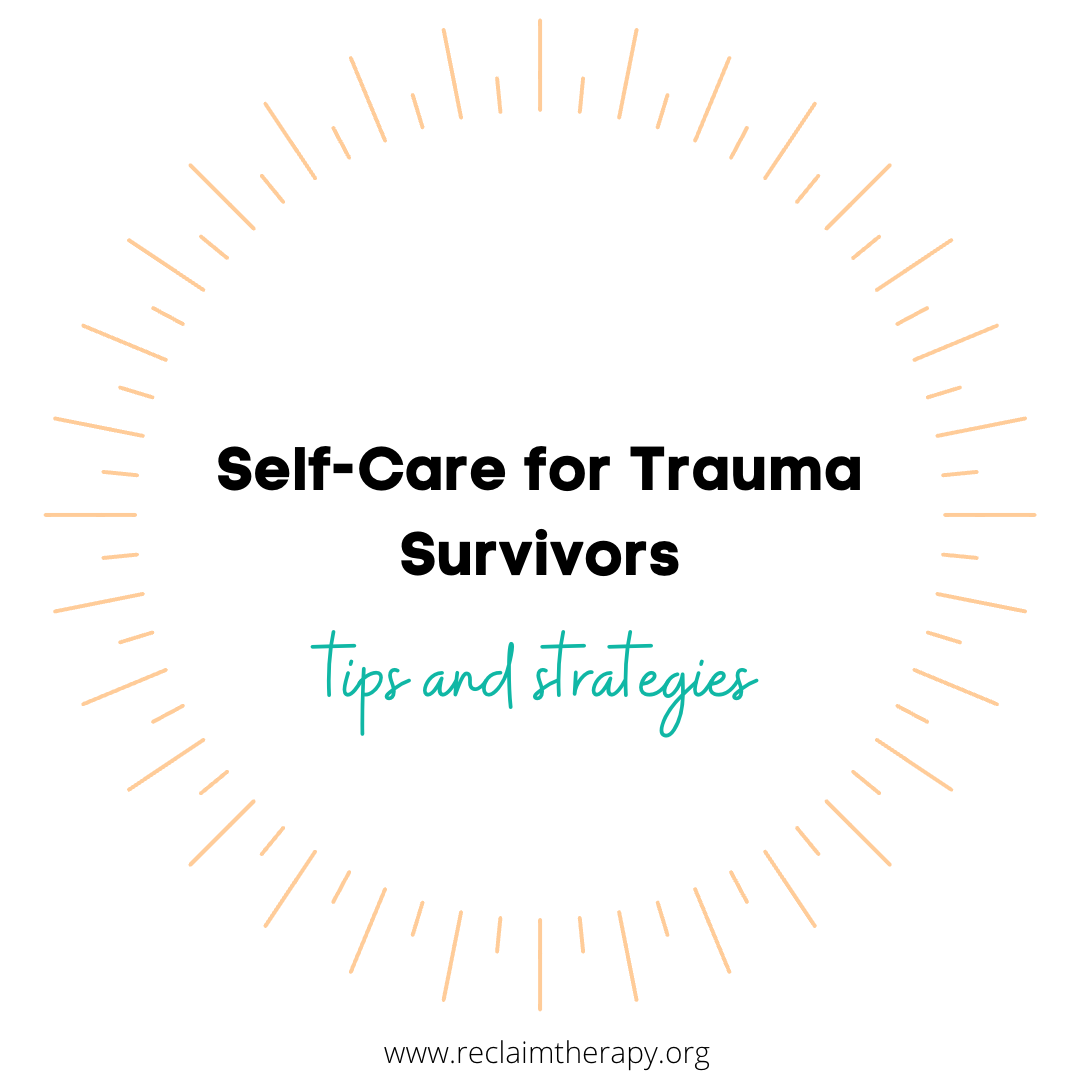
Self-Care for Trauma Survivors: Tips and Strategies
Boring self-care involves the small, everyday actions that may not seem glamorous, but can have a big impact on your overall well-being. This can include things like taking your medication as prescribed, getting enough sleep, eating often and adequately, feeling your feelings and engaging in joyful and connecting movement practices.
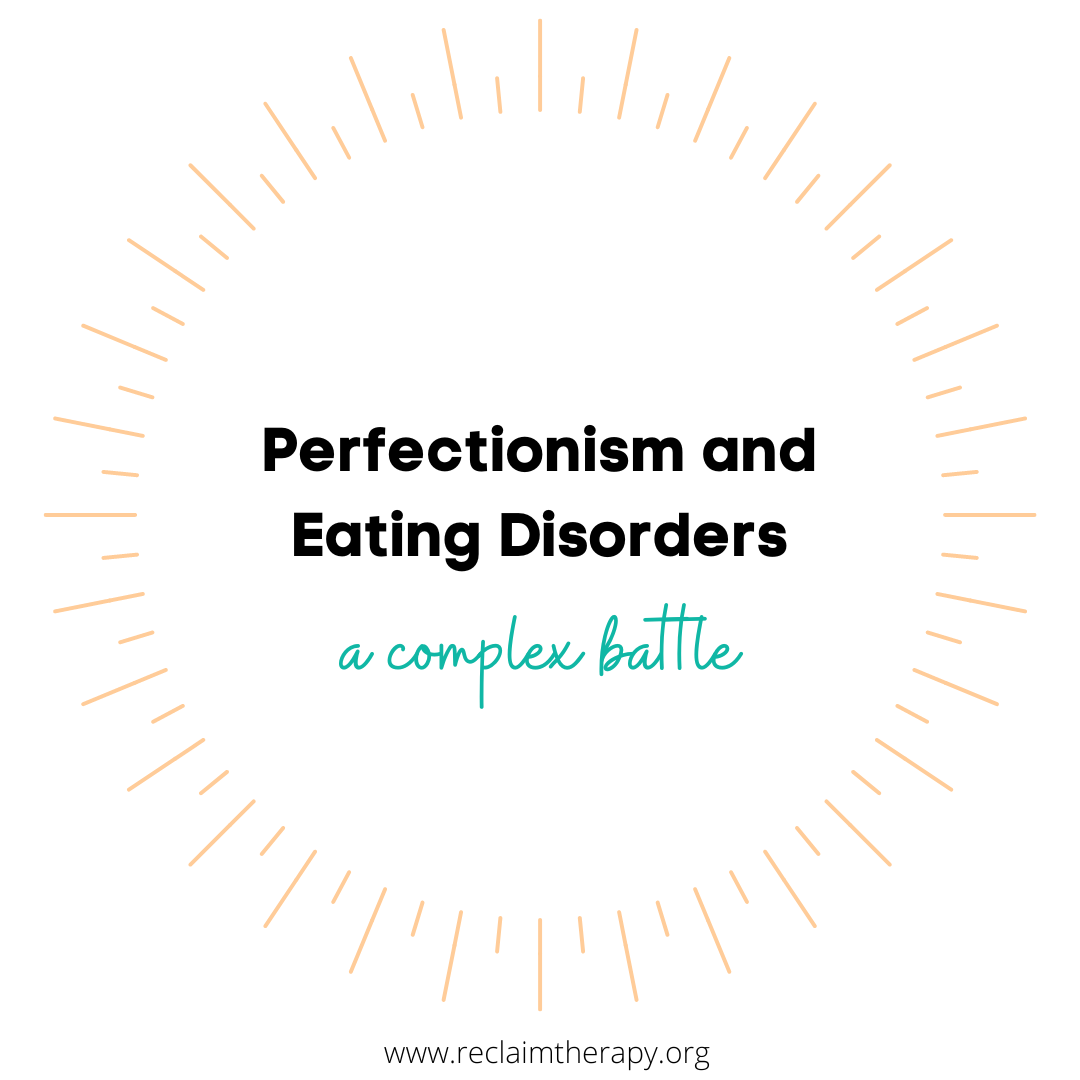
Perfectionism and Eating Disorders: A Complex Battle
For many, the pursuit of perfection has become so routine, that it can be hard to recognize when you’re engaging in perfectionist tendencies and how much it impacts your sense of self and sense of belonging and enoughness in the world.
Whether it’s striving for the thin-ideal, grinding and pushing for achieving or recognition, or pushing to have seemingly unmatched self-control, the pressure to meet society’s, and at times family of origin’s, high standards take a toll and can be overwhelming.
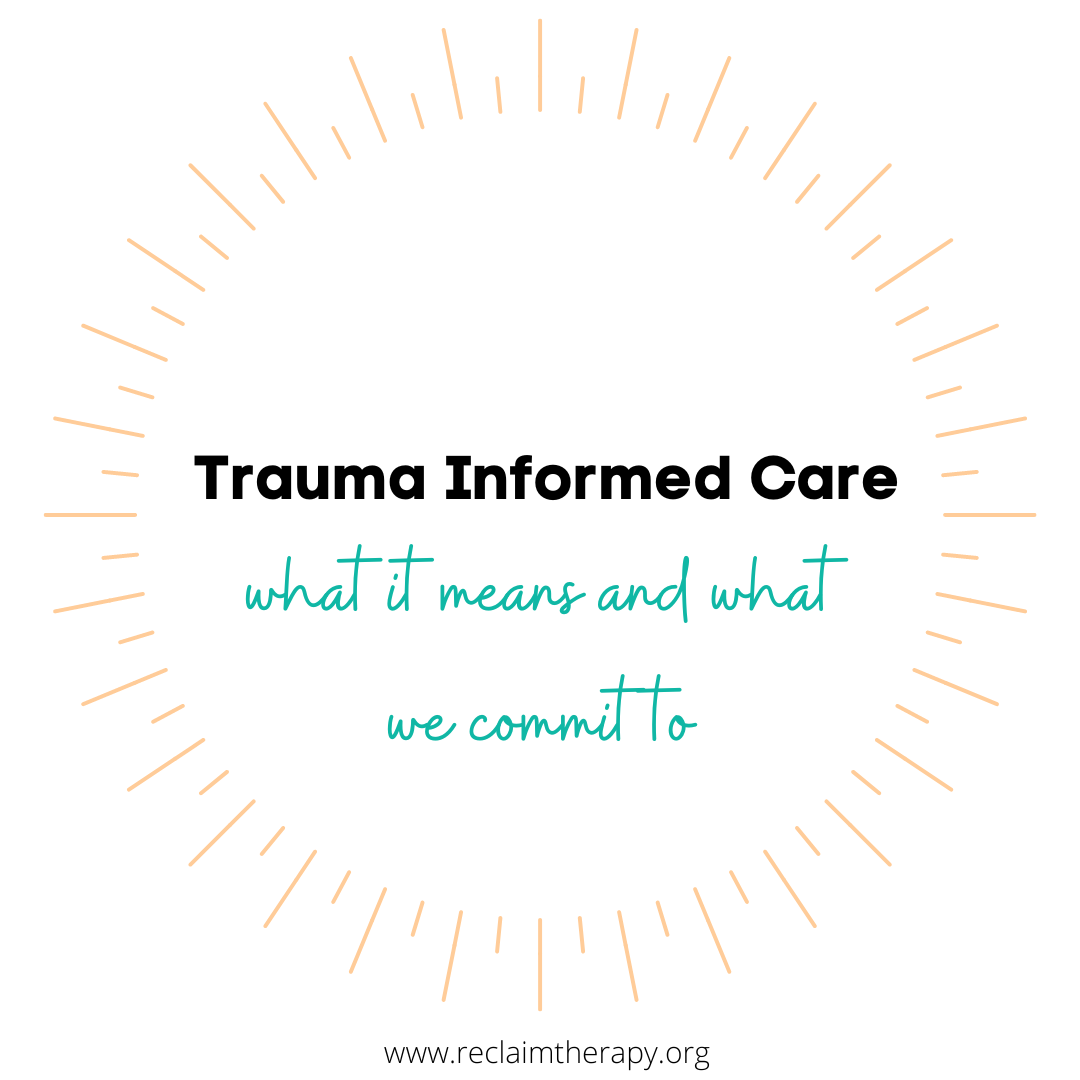
Trauma Informed Therapy in Pennsylvania
Here at Reclaim Therapy, we are a group of eating disorder therapists and trauma specialists in Pennsylvania. As a trauma informed therapy practice, we understand how trauma has an ongoing and living impact on the mental, physical, relational, social, spiritual and emotional realms of the human experience.
We meet our clients with acceptance, curiosity, compassion and a genuine interest in them, and what they have experienced, as humans in the world.
We believe that it is a right for all people to resolve and heal from trauma they have experienced.
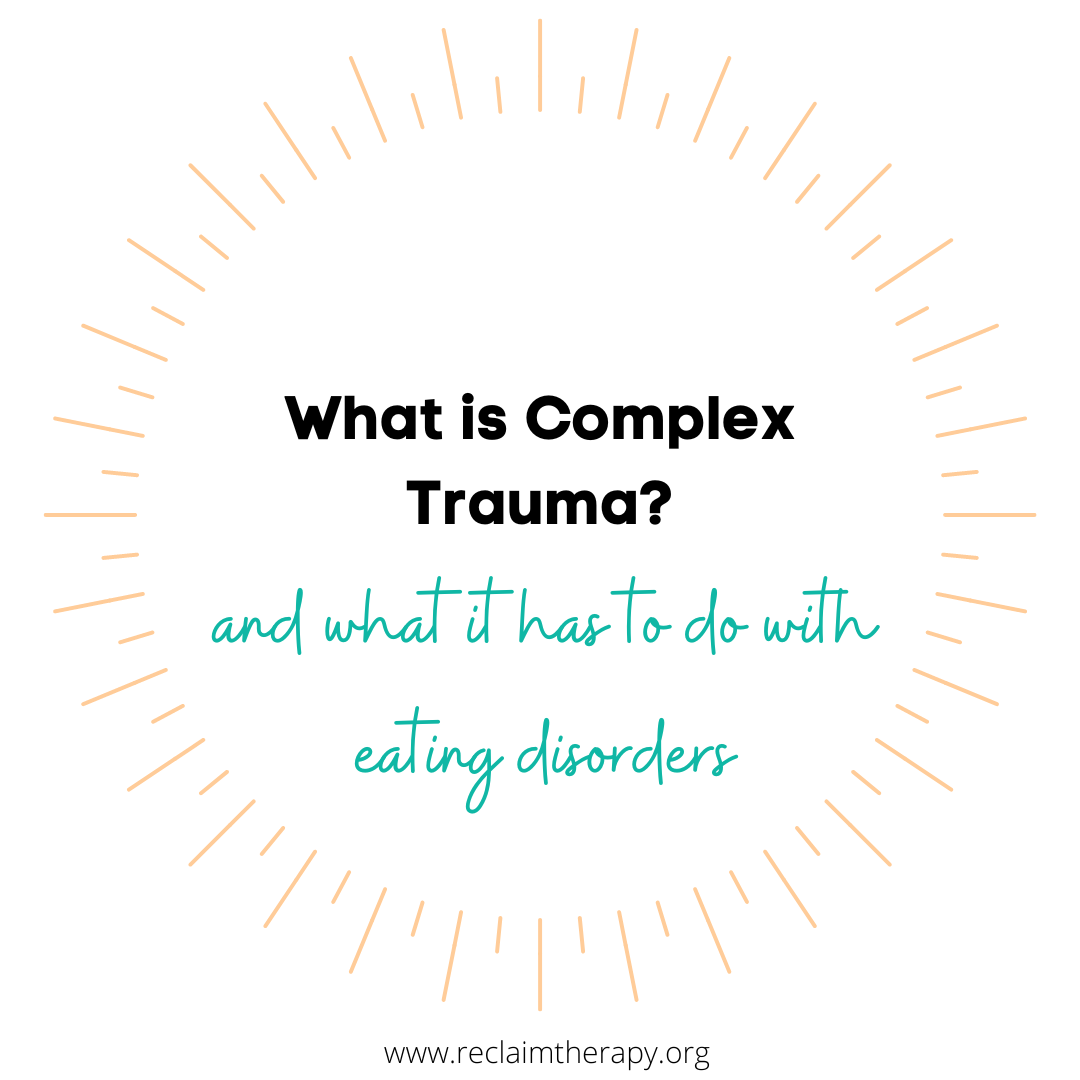
What is Complex Trauma? (CPTSD)
Two distinct components of CPTSD are:
Childhood attachment failure, even in the absence of other forms of mistreatment
Ongoing relational maltreatment like neglect, verbal, emotional, sexual or physical abuse.
Outside of childhood experiences, CPTSD is also seen as a result of imprisonment, sex trafficking, torture or being exposed to long term conflict.

Adverse Childhood Events : What They Are and Why They Matter
According to the CDC, close to 60% of adults in the United States have experienced at least one ACE, and nearly 1 in 6 adults has experienced 4 or more. The effects of ACEs are not limited to living through trauma in childhood, but often last into adulthood. Studies show that experiencing ACEs impacts a person’s physical and mental health, behavior, and social functioning.

Size Inclusivity: More Than a Number
Recently, I attended a trunk show for a well-known clothing brand that specializes in inclusive sizing.
I was excited to get to know the brand better and looked forward to supporting their efforts. I invited along a friend, and we headed into Philly for a session with our very own stylist…or so we thought.

Self Compassion Assessment
In this blog we talk about why self-compassion is so important in eating disorder recovery and recovery from trauma. We have included a self-compassion assessment developed by researcher Kristin Neff and a scoring guide to guage how self-compassionate you are. This isn’t meant for you to judge yourself, but instead an invitation into developing into the skill of self-compassion.

How to Navigate Relapse in Eating Disorder Recovery
At times you probably feel like things are going ok, that things are feeling a bit lighter, a less urgent, a little less impulsive to dive headfirst into eating disorder urges.
And other days it probably feels like you’re at the bottom of an epically steep mountain that is recovery.
Relapses in eating disorder recovery happen.
And, they can be opportunities to grow in your recovery process.

3 Ways to Move Away From Diet Culture According to An Eating Disorder Therapist in Pennsylvania
Diet culture is everywhere. When you start learning about diet culture, how far it reaches and permeates your everyday life, you’ll also start to recognize sneaky ways that it shows up in everyday conversations or in everyday activities.
Here are some common examples of how diet culture could be showing up in your everyday:

An Eating Disorder Therapist's Tips for Maintaining Recovery from Binge Eating Disorder
Binge eating disorder impacts almost 3 million adults in the United States.
It is also the most common diagnosis among both women and men struggling with an eating disorder.
It’s estimated that almost 80% of people with binge eating disorder are also struggling with another mental health disorder- studies show that 65% of people suffering from binge eating disorder also present with anxiety, and can have up to six times more likelihood of being depressed. Many people struggling with binge eating disorder have experienced chronic life stress, including trauma (PTSD) or complex trauma (CPTSD).

Top Benefits of Receiving Eating Disorder therapy according to an Eating Disorder Therapist in Pennsylvania
If you’re experiencing some ambivalence when it comes to starting, or resuming, your recovery from your eating disorder, we want you know that we get it. And, you undeniably deserve a life that free from exhausting behaviors, shame and anxiety spirals and a disconnected experience of your body.
Starting therapy for your eating disorder is brave. And after working with countless clients who are in recovery, we want you to know what we believe to be the top benefits of receiving therapy for your eating disorder.

Signs of Eating Disorders in Teens
Eating disorders occur across the lifespan in all body types. And, we know that teens are at significant risk for developing eating disorders. Research has shown that the average onset of an eating disorder is between the ages of 13-18 and that eating disorders occur in close to 3% of teens in that age range.
There are many nuanced reasons for this including puberty, bullying, social media exposure, your family’s relationship with, and beliefs about, food and body, genetic predisposition and athletics.

Exercise in Eating Disorder Recovery
Moving our bodes is something the team at Reclaim talks about all the time in the therapy room.
How to understand and dig into intentions for movement.
When to take a break from movement.
How to reincorporate movement into life when there’s pockets of readiness.
And, how to navigate a new relationship with movement- one that isn’t punishing, rigid or compulsive.

How To Stop Emotionally Eating
Sarah, how do I stop emotionally eating?
this is a question we received from one of our blog readers recently.
You know my instinctual response?
Don’t.
Don’t stop emotionally eating.
Deep breath.Hang with me for a minute, so I can explain.

Therapy for Breakfast: Trust the Process
Quite a few years ago, I saw Food Network chef and host Alton Brown perform at a local food and wine festival. Fully expecting a high-brow demonstration of how to cook some complicated culinary cuisine, I was instead surprised, and a bit disappointed, to hear him wax poetic about the art of making the perfect omelet. An omelet? Dude…seriously? WTF?
Despite my irritation, I didn’t leave. Instead, I listened and watched as Alton revealed his proven process to achieve breakfast bliss:

